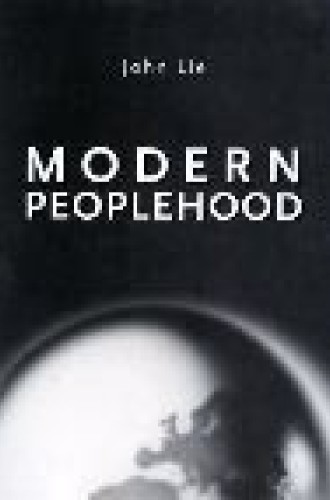Modern Peoplehood
Are old animosities to blame for the recent rise of religious and ethnic violence around the world? To believe that they are, we would have to believe that rivalries between Christians and Muslims, Hindus and Muslims, and Muslims and Jews characterized earlier times. Moreover, we would have to assume that ancient enmities have an enormous influence on today’s world.
Both assumptions are flawed. Most contemporary rivalries do not have ancient roots, and most ancient ones were not all that fierce. Most religious communities have lived rather comfortably alongside each other for much of the world’s history. Islamic regimes have been particularly tolerant toward other faiths in their midst, especially Christianity and Judaism. In the court of India’s Mogul emperor Akbar the Great, Hindus and Buddhists were welcomed for sessions of animated theological debate.
Moreover, most of today’s movements of religious and ethnic violence are aimed at symbols of the secular state, not at each other. When militant Sikhs sought separatism in India they killed Prime Minister Indira Gandhi, not a Hindu sadhu. And when radical Muslims obeyed the orders of Osama bin Ladin they attacked the Pentagon and the World Trade Center, not the Cathedral of St. John the Divine. Today’s religious radicals are critics of the modern secular state, and today’s rebellious ethnic and religious movements are recent inventions. Most scholars who have studied these religious rebels describe them as opponents of modernity, as “antimodernists.” But one can go even further, as John Lie does in this important new book, and state that movements of religious and ethnic politics are themselves products of modernity.
How can this be? We have been taught that the 18th-century Enlightenment ideas that gave rise to the French and American revolutions were all about reason. Lie agrees, but he argues that they were also about something else: community. The basic theories of such Enlightenment thinkers as John Locke and Jean-Jacques Rousseau assume that there are discrete communities of people, and that politics is their natural expression. When tied together politically by a representative, democratic state, these communities become nations. The logic of modernity implies that there must be a community before one can have a modern nation-state.
Lie suggests that this logic puts a premium on the idea of communal identities. A modern nation is unthinkable without this idea. Hence, the very notion of the modern nation encourages the existence of such identities, and national communities are creatures of the modern state. By “national identities” we usually think of nationalism—for example, the sense of being French that makes France a national community. Language and culture are part of nationalism, but so are religion and ethnicity in many parts of the world. All these things are constructed identities, according to Lie. There is no clear-cut natural boundary between languages and ethnicities. Nor is there anything intrinsically political about ethnic characteristics or religious affiliations that make them more appropriate to one national identity than another.
But since the notion of the nation-state is built on the idea that such communities exist, they are necessary ingredients for modern politics. Lie calls such communities “peoplehoods,” and he claims that the concept of the modern state is based on the notion of peoplehood. All religious and ethnic communities that are not defined by nations are potentially political. They are revolutionary or separatist communities waiting in the wings, able at any moment to clamor for their own political identity along the model that the modern state has provided.
It should be no surprise, then, that the current political challenges to secular authority are based on religious and ethnic ideas of peoplehood. The modern nation-state has been weakened by the very forces of globalization it has unleashed. It has been weakened by people’s remarkable mobility and by the instant communications that bring them closer together. Religious and ethnic communities provide expressions of identity and authority that challenge these forces and make available a modern alternative.
The idea of “peoplehood” can also take over the ideologies of nation-states and make them ruthless in their xenophobic excesses. This idea can justify even the most horrible acts of genocide. Lie exposes a tragic irony of history: modernity, based on the concept of national communities—of “peoplehood”—planted the seeds that have given rise to its corruption, and to its religious and ethnic opponents. In Lie’s view, these new religious activists are not old-fashioned but very modern. Whether we like it or not, they are one side of modernity.
But there are other sides to modernity as well. For those of us who fear the intolerance, the rigidity and the excesses of religious and ethnic politics, it is well to remember that the same modernity that produced them also left us a legacy of Enlightenment values. Among those values are the notions of respect for minority rights, fair play and the rule of reason.
Lie’s final words in this elegantly written, thoughtful book illumine the dilemma of modernity in our time. But they also provide a message of hope. Lie states that “the voice of reason” that is modernity’s great gift to our troubled times continues to be “a minor but resonant note in the cacophonic world” of present-day conflicts and provides, even in moments of religious and ethnic strife, a basis for “knowledge, hope, and love.”





